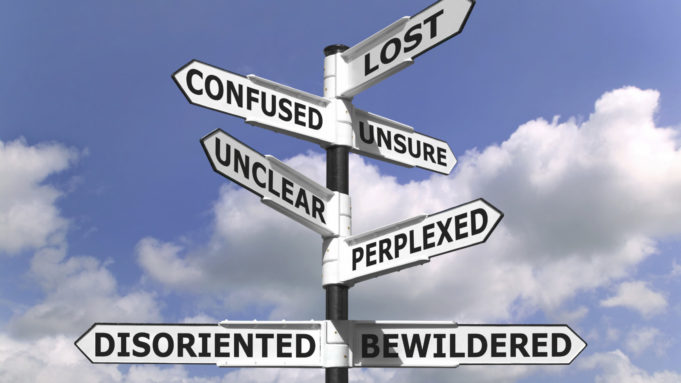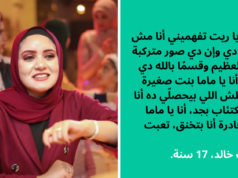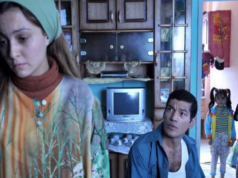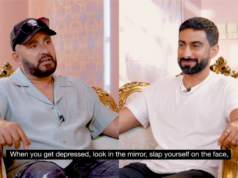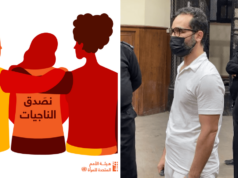Living in Egypt is “bad tereb”, as us youth would say. Despite what our elders think, we don’t want to move away because photos of Europe look “cool”. We want to leave because we have no such thing as exercised freedom. And freedom is the only condition to happiness. I have asked several people if and why they would like to leave the country. It goes without saying that I was not surprised to hear almost all of them say yes. One of those who quickly nodded yes, and I quote, told me “3shan te7esi enek moti w dakhalti el nar already”. Cheers for putting it so eloquently!
1- The Future Is Not Guaranteed
Even before the currency changes became this inconsistent, youth still wanted to leave the country because the way it’s managed has not been clear for a long time. But with this rate of inconsistency, the country is only going downhill from there. There is a price increase in all fields of life, which results in unstable electricity and water bills as well as product prices from toilet papers to cars and houses. The prices are skyrocketing while paychecks remain the same. So, what will happen when graduates start thinking about marriage? They won’t be able to live a life where they can offer their children good education, plan holidays or live a stable life. The future in Egypt is not guaranteed and the situation is only getting worse.
2- The Rate of Unemployment
Many of them have expressed a desire to leave the country in pursuit of an improved life and better future opportunities. Many who have left the country have found better job opportunities abroad. It is very common in Egypt for someone to work extremely hard for 10 years and end up with no money saved up. Not only is it common, it is indeed the case with the majority of Egyptian youth. Your parents will gladly pay every penny they worked hard for on international schools and private colleges, only for you to graduate and get a job that pays you close to nothing. Why pay all this money on education in Egypt when you can get an even better education for half the price abroad?
3- Mental and Emotional Weariness
Egypt is emotionally exhausting. It depletes you of your energy and youth until the only way to claim it back is to walk away. From men publicly peeing on the streets, catcalling, the lack of rules and morals, highways that are no good for driving and to everything that is fundamentally wrong with this country. This country is like King Wurzin from Doctor Who; it was wounded by its government and so needs to keep eating its people to survive.
4- Harassment
This one is mainly for girls. It is next to impossible to walk alone carefree down the street. Harassment has become second to breathing for girls. They breathe and they get harassed. This is how it works. I, like so many girls, have grown accustomed to being called so many names while outside my house that I have developed a trait that allows me to go deaf when I need to be.
5- Sexism and Double Standards
The bread and butter of our country’s society: Sexism and double standards in Egypt are really pronounced and cannot go unnoticed. A good Egyptian girl has a reputation that she needs to maintain at all times, while a guy can do whatever he pleases, except cry, because crying is not “manly”. Guys are allowed to stay late for as long as they can, while girls need to be home early because it’s too “dangerous”. How can a girl want to live in a country where she’s forced to go back home earlier than she wanted, because it’s literally not safe for her to be outside? Double standards are apparent in every aspect of Egyptian life, and we just can’t live with it any longer.
6- Cultural Relativism
Egyptians are a judgmental bunch and they will judge you even if you’re slightly different than them. Whatever you do in this country has to be done in terms of our so-called “conservative” culture. Guys and girls are not allowed to interact with each other in public. They are not allowed to friendly hug, kiss or touch each other in any way because people will stare. And it’s always the girl who gets the ugly stare down while the guy fidgets uncomfortably because he feels helpless. It’s not a nice situation and there are so many variations to it; I can’t even count them.
Youth in Egypt are living in fear and they can’t be who they are because their society will deem it “improper”. They can’t speak their own mind thus, are unable to implement their ideas to build a better future. The hypocritical thing is that those who look down on you for participating in activities society would regard as inappropriate are the same people who catcall, rape, swear, drink and cheat on their wives and husbands.
7- Traffic
They say that if you know how to drive in Egypt, you can drive anywhere in the world! Traffic in Egypt is absurd and no one can get anywhere on time, unless they get in their car an hour earlier than they should! Speed limits, radars, traffic lights, street signs and all those important aspects of road safety are not so important in Egypt. So, it’s only natural that youth would want to evade this unnecessary hassle. We’re always late to our meetings. Sometimes, we cancel entire plans because “be3eed awi’ and we’re not in the mood to deal with traffic. I must have spent more time in my car than I did at where I was headed. Because, speaking as a girl with a curfew, I have to leave earlier too to be home at 11 sharp (which almost never happens).
8- The Major Difference in Social Classes
The upper class in Egypt is in complete isolation of what goes around in the country or how the majority of the citizens are actually living. The upper middle class is working day and night to ensure a “mediocre” way of living, because that’s their only option. The poorer citizens are living in unspeakable conditions. In other words, there is a huge gap between the social classes. People from different social strata never get to understand one another, because there is no middle ground.
9- Recognition
Being someone stopped being enough; we now also have to become something! Everybody is identical in their deep desire to be special. Nobody believes they can be special whilst living in Egypt; it’s oil and water. It’s mostly because society would shame us for everything we are, if we were true to ourselves.
10- Corruption
Egypt’s system is basically cronyism and clientelism. Nobody will do you a favour and call it a day; everything is quid pro quo. Hatfedni hafeedak. And in order for you to become someone, you have to know someone who knows someone that knows THE someone. Nobody amounts to anything without a wasta, and if you don’t have one, then you’re screwed.
11- Medical Treatment
Most probably, you’ve been into the inside of an Egyptian hospital before. Just the sight of them would be reason enough to make you sick. And even the hospitals that are clean, offer you a moderate yet risky level of medical treatment.
12- Education System
What system? Eighteen year olds in Egypt are asked what they want to major in and there is such a lack of diversity in college majors that they will pick a major they have no interest in. They will pick the best of the worst because there aren’t many options. The American University is the only one that offers many majors but its tuition fees are exorbitantly high; not all upper middle class citizens can afford it. On top of all that, the universities and schools are underdeveloped in comparison to the amount of money you pay.
13- Independence
We want to have freedom of choice. And the right to express our opinions without being scolded by our parents and looked down upon by society. We all long to escape the societal burdens of our culture that leaves us no room to be who we are. Also, we want the chance to be exposed to developed countries. As well as the chance to experience what it’s like to live somewhere where rules are there for our protection, not for holding us back.
This one is for the Egyptian youth, who dream of immigrating, who dream of leaving and never coming back. We had to grow up in an environment that did not shape our beliefs. Instead, we wore the masks of obedient kids who never asked why and did what they were told.


